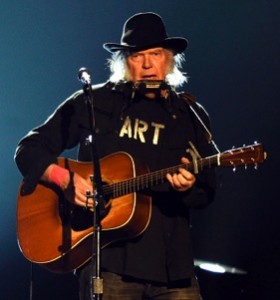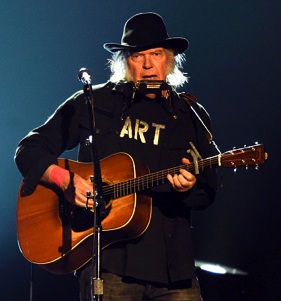
As much time as a band spends in the rehearsals perfecting their sound, it won’t mean anything if it’s botched coming out of the PA at the live show. The sound guy (or gal) is one of the most important components of any show. The audio engineer (FOH) can make or break the band’s set. It should probably be noted that no sound engineer can actually MAKE a set if the band sucks. ☺
A couple of months ago, a close friend of mine from Portland, OR, Bob Sterne passed away . He was an audio pioneer and founder of Northwest Sound, clients included Tom Jones; Crosby, Stills, Nash & Young; Joni Mitchell; Boz Scaggs; Steve Miller; The Eagles and Neil Young. He was also a longtime tour manager and sound mixer for Neil Young and sound coordinator for many Super Bowls. He was also the FOH for Crosby, Stills, Nash & Young on the band’s 1974 Reunion Tour. He was 73.
Commenting on his Facebook page, Neil Young posted: “Last night, in Leeds, U.K., where Young performed, we learned that Bob Sterne, our beloved sound guru for the ages, soundscape architect of Rust and Ragged Glory, had passed away. all of us have lost a beacon of light”.
Bob was one of the few engineers who could re-produce the same sound that you would hear on any of your favorite Neil Young records.
Another great FOH engineer is John Cooper, I hired him years ago to do a world tour for Kitaro. He is now working with Bruce Springsteen.
John will tell you that a major part of any Springsteen tour is pushing the envelope and striving for the best in every area — whether on stage or in the house. “At the end of the day, we don’t base any sound decision on whether it represents more work. In Bruce’s world, if it’s better, we do it — and that applies to every person on this tour — whether they’re a guitar tech, set carpenter, front of house engineer or lighting director. It’s all about doing whatever we can to make this better, because Bruce gives so much in terms of the performance aspect, and the least we can do is to try and keep up with him. He’s 62 years old and throws down more than most 22 year olds on that rock-n-roll stage. I do whatever I can to take every tour to the next level.”
The Safety Net
“At the same time, I’m not going to stick my neck out there and risk everything to be on the cutting edge of technology. There’s a fine line between what works, what’s available out there and what can get you into big trouble if you had a failure,” Cooper adds. So we came up with the idea of running two complete front of house engines through a MixSwitch. The engines are MIDI linked and files are cloned from one engine to the other. Then when I fire a cue on the primary ‘A’ front of house engine from the control surface, that change is reflected on the ‘B’ engine. It’s all monitored via a network laptop, and the control surface can be swapped over in a matter of seconds. It takes about a half-second to switch over the ‘B’ engine audio, which I do routinely during sound check and so far, the band has not detected the change, if I do it on a downbeat.”
One backup is fine, but it goes a step further. “Our second course of redundancy is also through the MixSwitch. I have a mix-minus and a Bruce vocal feed from the stage right monitor console, so if both engines fail, I can still drive a mix through the sound system and complete the show. Triple redundancy is the name of the game in our world. A console failure is just not acceptable. But to not build in escape routes — and test them as part of your routine — is just foolhardy. There are millions of dollars at stake at every event, and, as corny as this is to say, you’re only as good as your last show. You might mix a thousand great shows, and I don’t want to be known as the guy whose console quit on him at Madison Square Garden.”
Being successful in any team endeavor, whether as a football quarterback or Indy race driver, requires a coordinated effort by an experienced and well-practiced crew that works together towards a common goal. “I’m the lucky guy that gets to mix this and be intimately involved in Bruce’s music, which is a privilege beyond all others,” Cooper explains. “But I can’t do what I do without the support of the guys out here who look after me. It’s the system engineers and the guys who are hooking things up that allow me to have such great consistency when I mix that show. These men are the best there is. I can’t thank them enough.”

